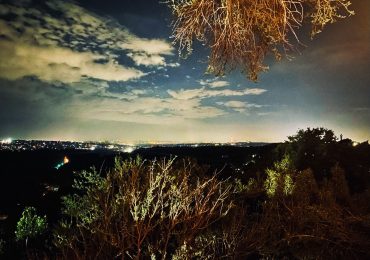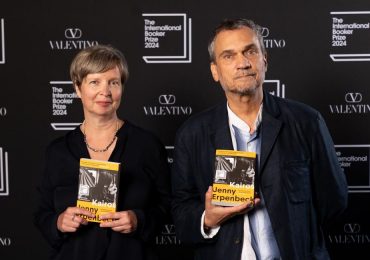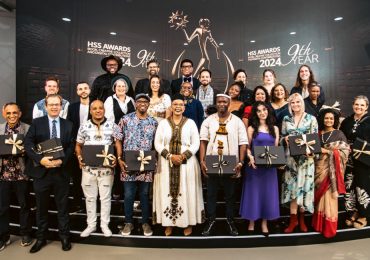Ntsika Kota has been announced as the overall winner of the 2022 Commonwealth Short Story Prize, making history as the first-ever winner from Eswatini.
The Commonwealth Short Story Prize, known as ‘the world’s most global literature prize’, is awarded annually for ‘the best piece of unpublished short fiction’ from any of the Commonwealth’s fifty-four member states.
Judges praised Kota’s winning story, ‘and the earth drank deep’, for ‘putting “evil” on display without interrogation or judgement’.
It was a record year for entries to the prize, with 6,729 entrants from fifty-two Commonwealth countries worldwide.
The Commonwealth Foundation announced Kota’s win in an online ceremony, in which he and the four regional winners read extracts from their stories. He was presented with the award, which comes with £5,000 (about R98,000) prize money, by performance poet Mr Gee.
The twenty-nine-year-old was also the first writer from Eswatini to be shortlisted for the prize.
Kota’s winning story, ‘and the earth drank deep’, centres around a group of villagers in a hunter-gatherer society set in the ‘distant past of our species’. As they encounter threats from wild animals, disease, and unexpected death, the story tells of a day when ‘cold blood flowed for the first time, and the earth drank deep’. Some aspects of the social hierarchy of the village were very loosely based upon Nguni cultures from Southern Africa, Kota says, but the society he depicts is imaginary.
Born in Mbabane, Eswatini, Kota is a chemist by training. A self-taught writer, he was originally inspired by a high school writing assignment. He says his work is a reflection of his thoughts and feelings, and he enjoys creating that reflection.
He said of winning the award:
‘There are not many literature prizes more global in scale or inclusive in scope than the Commonwealth Short Story Prize. I submitted my story more out of pride than expectation. I was aware of the calibre of writing and adjudication so I was under no illusions about my chances. However, against all odds, my story was shortlisted. It was just the endorsement I had hoped for. It meant that the pride I felt in what I had put to page was justified. It was everything I had hoped for. I expected no more.
‘Although, that being said, I couldn’t help but daydream about winning the Prize. I never let myself actually hope to win, though, let alone expect to. After all, that would be ridiculous! A rank amateur? In such distinguished company? Fantasise if you will, I told myself, but for goodness’ sake, be realistic. Imagine my surprise, then, when I got that call.’
The judge representing the African region, Rwandan publisher Louise Umutoni-Bower, said the story ‘uses African folktale in a way that remains true to form but is also accessible. It is a reminder of a time when storytelling had a prized place in social gatherings.
‘I was personally transported back to the floor by my mother’s feet where I quietly listened to tales of Rwandan folk heroes and villains.’
Chair of the Judges, Guyanese writer Fred D’Aguiar, said,
‘This year’s winner is an instant classic: a linear narrative in the tradition of the realist short story. The events unfold around a central ethical conceit with tension that accumulates, and a surprise ending leaves the reader with many questions and in a state of provocation. The deceitfully simple and straightforward style rubs against an artful orchestration of tension. The writer controls elements of character and plot to captivate the most sceptical of readers. The reader inherits a host of hot topics for discussion at the end of the story all of which shine back at the reader’s world. Like the best parables the result is an interplay between story and reality, invention and the quotidian, the writer’s imagination and the world of the reader.’
Dr Anne T Gallagher AO, Director-General of the Commonwealth Foundation, said:
‘Ntsika’s wonderful success is a reminder of what makes the prize unique. It is an opportunity for writers from across the Commonwealth to express themselves, regardless of where they live or their previous writing experience. How fitting that Ntsika—a self-taught writer, hailing from one of the smallest Commonwealth countries—should triumph. His success is a reminder of the universality of writing and storytelling. We all have that special power for storytelling within us, if we can only find a platform to unleash it. And, once again, the prize has confirmed its uncanny ability to unearth new talent that, in this and future work, will no doubt take the world by storm!’
The 2022 prize was judged by an international panel of writers, each representing one of the five regions of the Commonwealth, chaired by Guyanese writer Fred D’Aguiar. His fellow judges, drawn from the five regions of the Commonwealth, were Rwandan publisher Louise Umutoni-Bower (Africa), Indian short story writer and novelist Jahnavi Barua (Asia), Cypriot writer and academic Stephanos Stephanides (Canada and Europe), Trinidadian novelist and former winner of the Commonwealth Short Story Prize Kevin Jared Hosein (Caribbean), and Australian Wiradjuri writer, poet and academic Jeanine Leane (Pacific).
Kota beat off competition from a strong field of shortlisted entrants from Africa, including Nigerian authors Dera Duru and Franklyn Usouwa, Ugandan author Charlie Muhumuza and Mubanga Kalimamukwento from Zambia.
The overall winner was chosen from a line-up of five regional winners, the others being: Asia winner Sofia Mariah Ma (Singapore), Canada and Europe winner Cecil Browne (United Kingdom/St Vincent and the Grenadines), Caribbean winner Diana McCaulay (Jamaica), and Pacific winner Mary Rokonadravu (Fiji).
The five regional winning stories have been published by literary magazine Granta, and are also available in a special print collection from Paper + Ink.
Last year’s Commonwealth Short Story Prize winner was Sri Lankan author Kanya D’Almeida, for her story ‘I Cleaned The—’.





